Njamito Goes Fairtrade for Cocoa and Vanilla
March 31, 2025Njamito is now Fairtrade certified for cocoa and vanilla! Here’s what that means for farmers, the planet, and the values behind our meal-in-a-bottle.
Read articleOptimism, flavor, and sustainability dominated BIOFACH 2025 as we explored market trends, strategic partnerships, and future opportunities.
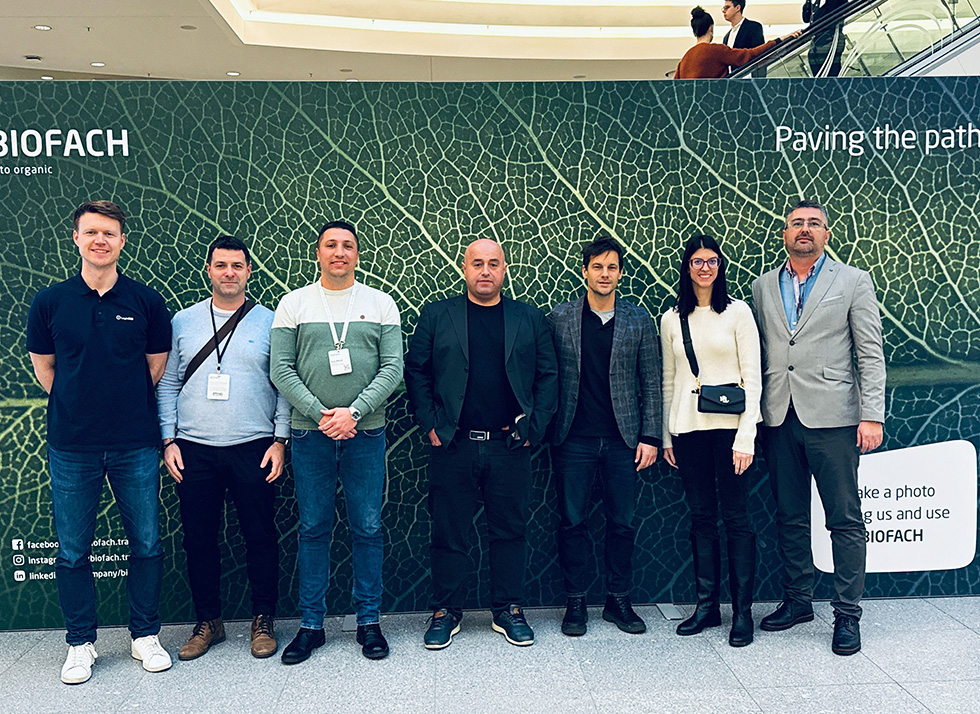
Entering BIOFACH 2025, the sense of renewed optimism in the organic sector was immediately clear. After a couple of challenging years, the industry is bouncing back. Post-pandemic, consumers are looking for more. More transparency, more sustainability, and more flavor. The organic sector seems ready to deliver.
We’ve been attending BIOFACH for several years now, and each visit offers valuable insights into the evolving organic sector. For us, it’s the perfect chance to stay updated on the latest industry trends, meet with our existing partners, and discuss both ongoing projects and future collaborations.
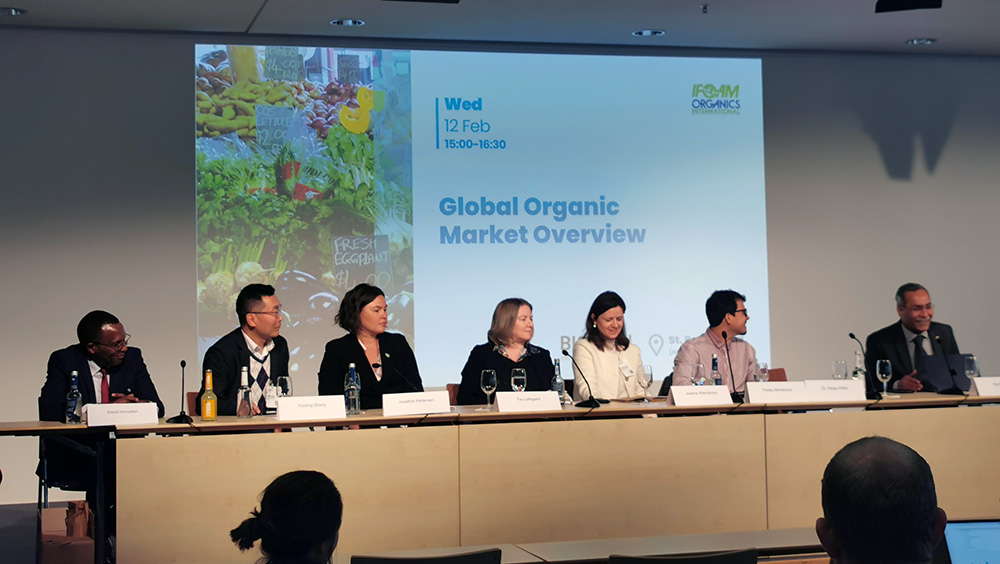
It’s also a valuable moment to explore new trading opportunities and share ideas that drive innovation and growth. Each year brings something new, and 2025 was no exception—here’s what we learned.
One of the highlights of our visit was attending lectures that offered deep insights into the organic market’s direction. IFOAM and FiBL presented comprehensive data from 2023, along with forecasts for 2030.
Their analysis painted an optimistic picture, with key trends focusing on transparency, sustainability, and regulations, evolving to meet consumer demands. Regulations were a key topic throughout the event, reflecting the industry’s shifting expectations. It’s clear that adaptability is more important than ever as the sector continues to evolve.
Our colleague Matej had the opportunity to speak at the sustainability reporting panel and share practical insights and best practices on what’s needed moving forward.
He emphasized that farmers should not be burdened with bureaucracy and that hiring staff just to handle paperwork for certifications or subsidies is inefficient when existing data and technology can simplify the process. Moreover, technology should be a tool that supports farmers, not adds complexity. Only solutions providing real value and a seamless user experience gain traction among end-consumers—the same principle should apply when developing digital tools for farmers.
That’s why on our 3,700 ha organic farm, we use our own self-developed farming software, designed to integrate effortlessly across all operations and provide actionable insights based on real-time data. We believe in empowering other farmers to do the same, which is why we’re offering our software to other farms for free.
Additionally, Matej made a brief remark on the health, environmental, and social aspects of the hidden costs of food, highlighting the importance of considering these factors when shaping future sustainability frameworks.
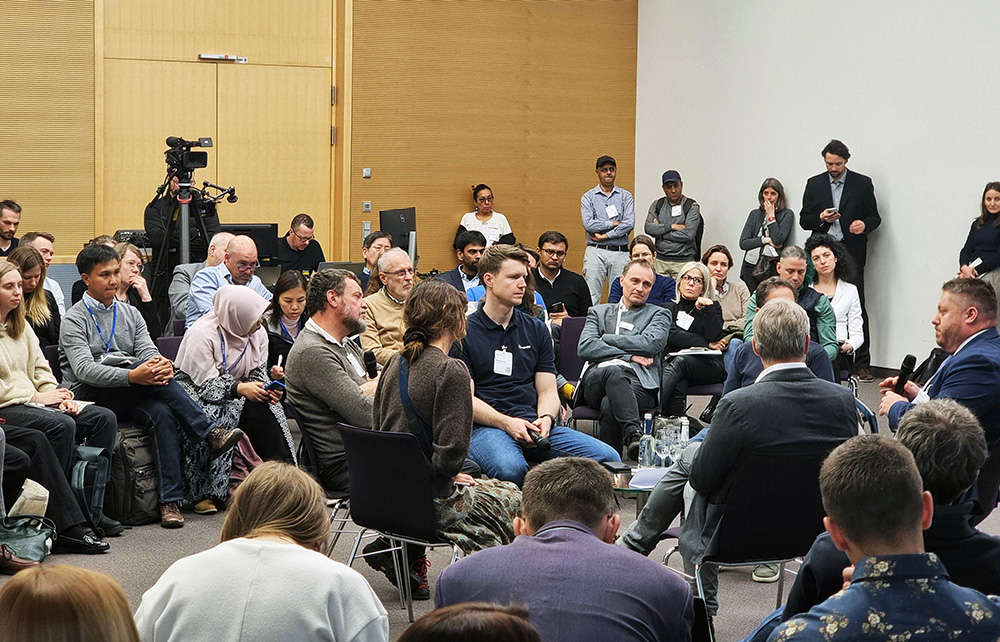
The organic market’s recovery is driven by consumers who are not only health-conscious but also value sustainability and transparency. Several key trends stood out throughout the event:
Traceability, a core element of all our activities, was central to these discussions—a reassuring sign that our approach is aligned with industry priorities. Moreover, we identified some potential partners who are interested in adopting our traceability solution, The Origin.
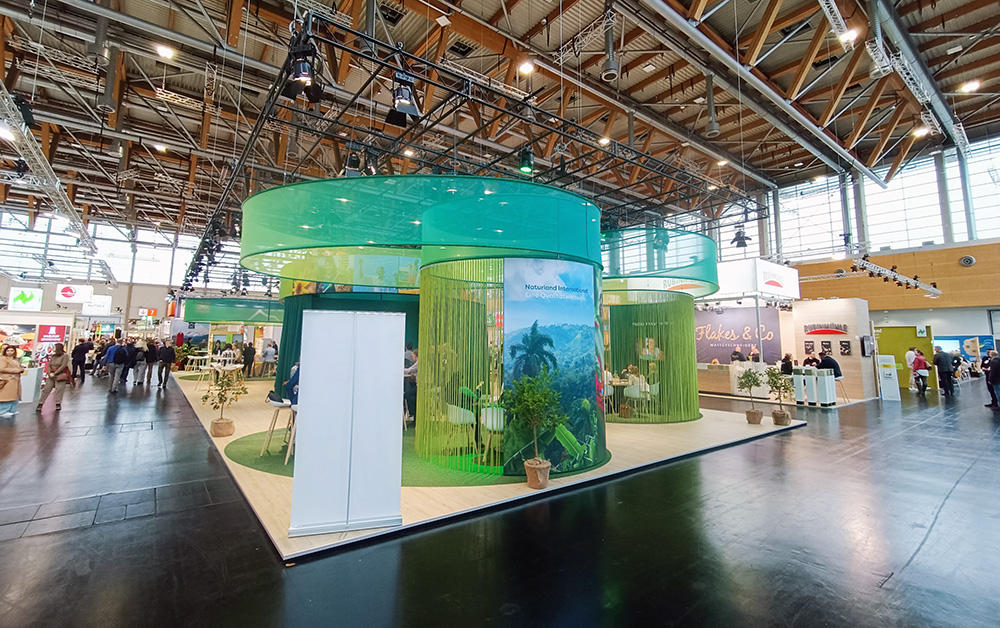
It was rewarding to meet and reconnect with existing and potential partners, seeing our efforts are gaining visibility and recognition among peers and potential partners.
We explored how our software solution could support organic certification processes and a significant portion of our focus was expanding the reach of Njamito’s UHT version in the DACH region, where we see strong market potential. Our discussions with distributors in this region were promising, and we believe that Njamito is well-positioned for its next phase of growth.
Additionally, we explored new possibilities with partners interested in value-added organic products. Freeze-dried goods, in particular, emerged as a trending topic due to their economic advantages and increasing consumer demand. The industry’s move towards maximizing the value of organic products aligns with our vision of sustainable and efficient production.
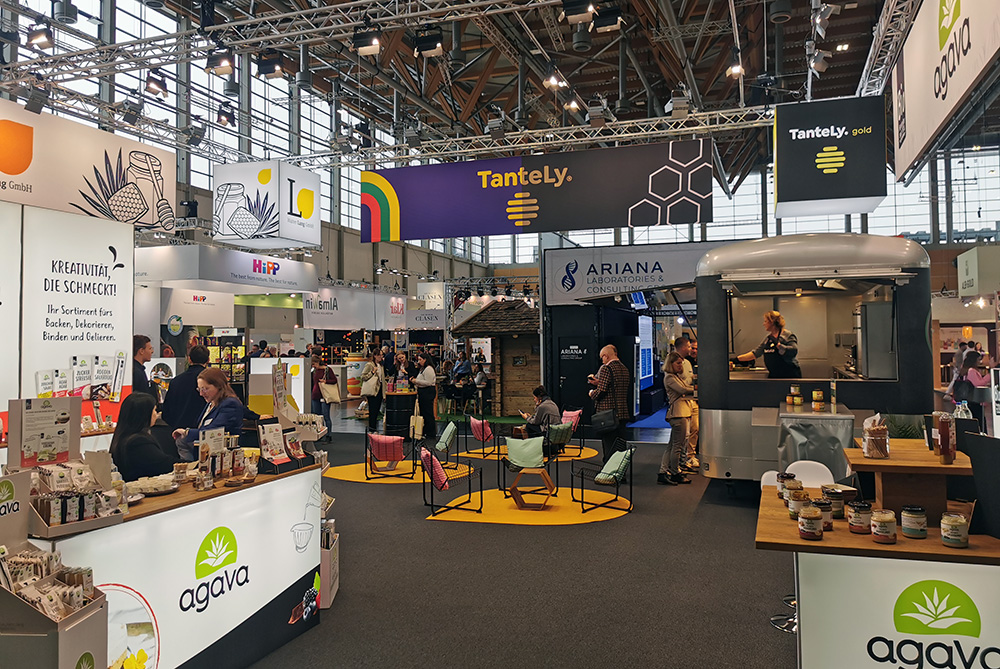
As we reflect on our experiences and discussions at BIOFACH 2025, it’s clear that our trajectory aligns with broader industry trends. The optimism at the fair is a reminder that the organic future we’re working toward is shared, bright, and transparent.
We are excited about the opportunities ahead and remain committed to fostering partnerships that drive meaningful progress.
Njamito is now Fairtrade certified for cocoa and vanilla! Here’s what that means for farmers, the planet, and the values behind our meal-in-a-bottle.
Read articleIdealism met reality as we launched our meal-in-a-bottle, Njamito. After 100.000 bottles sold, here’s what we learned about organic food and market adaptation.
Read articleWith organic seeds in short supply, we launched our own organic seed production journey to secure sustainable farming practices.
Read article